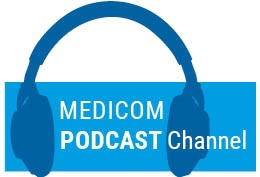For patients who had discontinued statin therapy due to side effects, 90% of the symptom burden elicited by a statin challenge was also elicited by placebo [1]. This convinced half of the study subjects to (successfully) restart statin therapy, according to results from the SAMSON trial.
Dr James Howard (Imperial College London, UK) presented the trial data, which were simultaneously published in the New England Journal of Medicine [1,2]. The highly anticipated SAMSON trial had a very original design. “This trial was designed to clarify the mystery as to why so many of our patients suffer side effects while taking statins, and yet randomised controlled trials including placebo show a similar risk of side effects, whether patients take statin or placebo tablets,” Dr Howard explained. The N-of-1 trial included 60 patients, all of whom had previously stopped statin treatment due to side effects. They were randomised to alternating 1-month periods of either 20 mg atorvastatin, placebo, or an empty pill bottle in a blinded fashion for 1 year. Each patient received 4 bottles containing atorvastatin, 4 bottles containing placebo, and 4 empty bottles. Patients scored their symptom intensity daily on a 100-point scale using a smartphone app.
Mean symptom intensity was significantly higher during the placebo months (15.4; 95% CI 12.1–18.7) and statin months (16.3; 95% CI 13.0–19.6) compared with the no-tablet months (8.0; 95% CI 4.7–11.3) (both P<0.0005). However, there was no significant difference between placebo and the statin (P=0.39). Pooling the results across patients, 90% of symptoms could be attributed to the nocebo effect.
After the trial period, the data was provided to the participants. Showing the patients that most of the side effects they had attributed to a statin were equally evident while on placebo convinced 30 of the 60 subjects to successfully restart statin therapy (for ≥6 months), and another 4 subjects were considering restarting. “SAMSON leaves no doubt that patients really do experience side effects from statin tablets”, Dr Howard commented. “However, these effects are not caused by the statin molecules, but by the act of taking the tablet.”
- Howard J, et al. A Three-Arm N-of-1 Trial With Statin, Placebo and Tablet Free Periods, to Verify Side Effects and Identify Their Cause: The SAMSON Trial. 04, AHA Scientific Sessions 2020, 13-17 Nov.
- Wood F, et al. New Engl J Medicine 2020;383:2182-2184.
Posted on
Previous Article
« Polypill plus aspirin reduces cardiovascular events Next Article
Novartis and Bill & Melinda Gates Foundation collaborate on therapy for sickle cell disease »
« Polypill plus aspirin reduces cardiovascular events Next Article
Novartis and Bill & Melinda Gates Foundation collaborate on therapy for sickle cell disease »
Table of Contents: AHA 2020
Featured articles
COVID-19 and Influenza
Fewer CV complications than expected in AHA COVID-19 Registry
Worse COVID-19 outcomes in younger obese patients
Effects of CVD in hospitalised COVID-19 patients
Unfavourable outcomes for COVID-19 patients with AF and atrial flutter
High-dose influenza vaccine in patients with CVD
Atrial Fibrillation
Vitamin D or omega 3 fatty acids do not prevent AF
Active screening for AF improves clinical outcomes
AF screening in older adults at primary care visits
CVD Risk Reduction
Clever trial design gets patients back on statins: the SAMSON trial
Polypill plus aspirin reduces cardiovascular events
Lowering LDL cholesterol in older patients is beneficial
No CV benefit from omega 3 in high-risk patients
Safety and efficacy of inclisiran for hypercholesterolemia
Remote risk management programme effective and efficient
Healthy lifestyle lowers mortality irrespective of medication burden
Heart Failure
Omecamtiv mecarbil improves outcomes in HFrEF-patients
IV iron reduces HF hospitalisation
Dapagliflozin reduces renal risk independent of CV disease status
“Strongly consider an SGLT2-inhibitor in most T2DM patients”
Additional HFrEF education and patient-engagement tools
Acute Coronary Syndrome
No benefit from omega-3 fatty acids after recent MI
PIONEER III trial: Drug-eluting stents comparable
Coronary and Valve Disease
Extra imaging reveals cause of MINOCA in women
Ticagrelor not superior to clopidogrel after elective PCI
Stroke
Ticagrelor/aspirin reduces stroke risk in patients with ipsilateral cervicocranial plaque
AF monitoring following cardiovascular surgery
Miscellaneous
PAD: Rivaroxaban reduces VTE risk after revascularisation
Sotatercept: potential new treatment option for PAH
Finerenone lowers CV events in diabetic CKD patients
Mavacamten effective in obstructive hypertrophic cardiomyopathy
Children exposed to tobacco smoke have worse heart function as adults
Transgender people have unaddressed heart disease risks
Intensive blood pressure lowering benefits older adults
Longer chest compression pause worsens outcomes after paediatric IHCA
Related Articles

November 18, 2020
AHA 2020 Highlights Podcast
February 17, 2021
Remote risk management programme effective and efficient
February 18, 2021
Omecamtiv mecarbil improves outcomes in HFrEF-patients
© 2024 Medicom Medical Publishers. All rights reserved. Terms and Conditions | Privacy Policy
HEAD OFFICE
Laarderhoogtweg 25
1101 EB Amsterdam
The Netherlands
T: +31 85 4012 560
E: publishers@medicom-publishers.com

